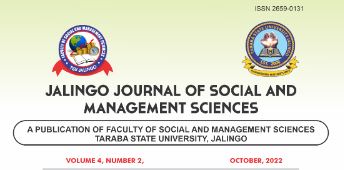Technical Efficiency of Rice Production and Food Insecurity in Sub-Saharan Africa: Evidence from Leading Rice Producing Countries
Keywords:
Co-integration Test, Fixed Effec, Food Insecurity, Hausman Test, Panel VAR, Random Effect, Rice Production, Technical Efficiency, Unit Root TestAbstract
Food insecurity has been a greater challenge to the LDCs which is increasing with global recession and the pandemics. This study examined the impact of technical efficiency of rice production on food insecurity in Sub-Saharan Africa using a quarterly data spanning the period 2017Q1 to 2021Q2. Data series sourced were subjected to the panel unit root test based on Augmented Dickey-Fuller framework. Result shows that all the variables are not stationary at level but stationary at first difference. Also, Johanson Co-integration test was conducted, and the result shows the non-rejection of the null hypothesis (series were jointly not co-integrated in the long run). We carried out the estimation based on traditional Panel VAR framework thereafter. Hausman Test lastly qualifies appropriateness of the Random Effect Model. In view of the results, it is established that with exception of technical efficiency index, all other explanatory variables have negative impact on Food Insecurity Experience Scale and it conforms the a priori expectation, while technical efficiency index of rice production is found out positive and significant determinant of the Food Insecurity Experience Scale at 41% which is against a priori expectation. Lastly, this study recommends that governments across the SubSaharan Africa should improve their rice farmers’ technical efficiency through irrigation, further education, enlightments and increase in the farmers’ contact with extension workers.

Downloads
Published
Issue
Section
License
Copyright (c) 2023 JALINGO JOURNAL OF SOCIAL AND MANAGEMENT SCIENCES

This work is licensed under a Creative Commons Attribution-NonCommercial 4.0 International License.
